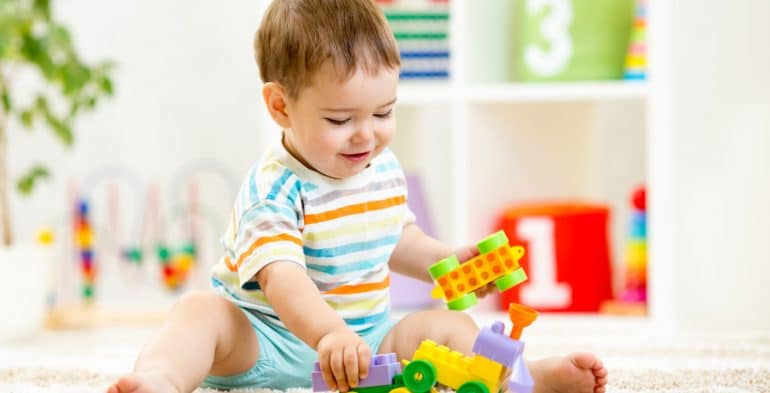
Activities to play with your 9 -12 month old baby
Why play is so important
Play is important for children’s development and for children to bond. It offers a chance to connect with your child. You are your child’s first teacher and much of that teaching happens through play. Play helps your child learn the rules of your family and what is expected of him or her. As children grow, play helps them learn how to act in society. Parents need to make time to play with their children. You start to play when your child is an infant. When your baby starts to smile and you smile back, you are engaging in play. Play is directed by the child and the rewards come from within the child. Play is enjoyable and spontaneous. Play helps your child learn social and motor skills and cognitive thinking.
10 games to encourage development with your 9-12 month old baby
1 .Get on Their Level
Play with your baby down on the floor. Talk about the toys, colors, and shapes you are playing with. Roll a ball to them and encourage them to roll it back to you.
2. Let Them Crawl Over You
Lie on the floor and watch as your baby crawls over you. (They will do this without any encouragement, and do it for many years!). Using you as a support, they may well pull themselves up to standing.
3. Create an Obstacle Course
Make an obstacle course for your baby to move through. They will love climbing though a tunnel made out of boxes and under the chair or behind the couch.
4. Roll Around
Play with rolling toys such as balls and cars. Your baby will have the stability to sit and push these back and forth, either by themselves or with you.
5. Peek-a-Boo
Play peek-a-boo with your baby, using your hands, towels, or blankets.
6. Pat-a-Cake
Play pat-a-cake with your baby, alternately clapping your hands and then patting their hands.
7. Reading
Even though baby may not understand, read books out loud and ask questions about the story. Point to pictures and familiarize him/her with books in general
8. Magic scarf box
Fill an empty tissue box with colorful scarves that are all tied together. Encourage baby to pull them out.
9. Hidden musicTurn on one of the baby’s toys that makes music and hide it under a sheet or behind something. Then ask your child to find it. Babies love to play – just watch their faces light up when you produce the toy!
10. Singing and dancing
Babies just like adults love music. Help them to understand rhythm by dancing along and encourage speech and listening by singing.
Have Fun!
Games should be fun for you and baby. Have fun and experiment, there are no hard and fast rules and if baby is playing and laughing they are almost certainly learning!







